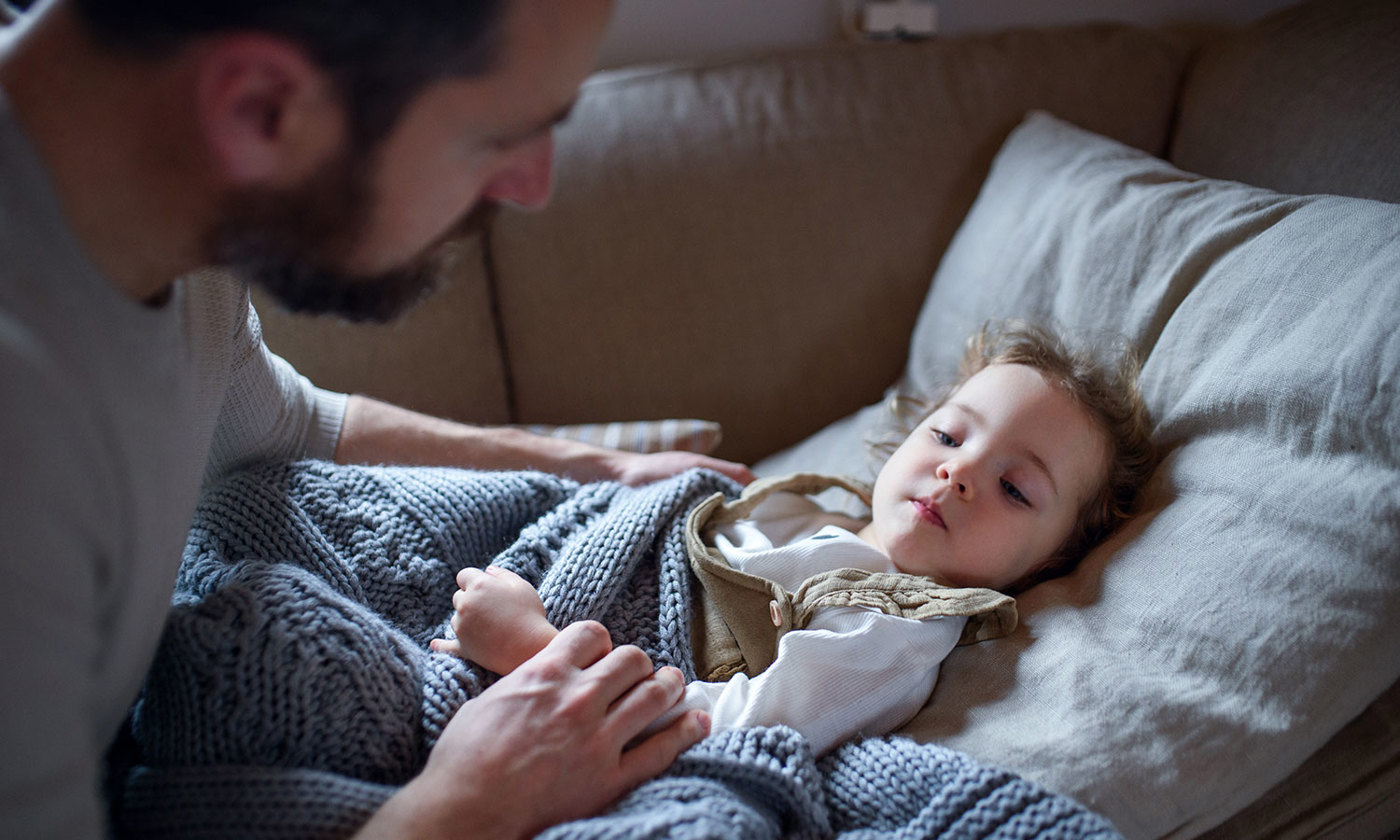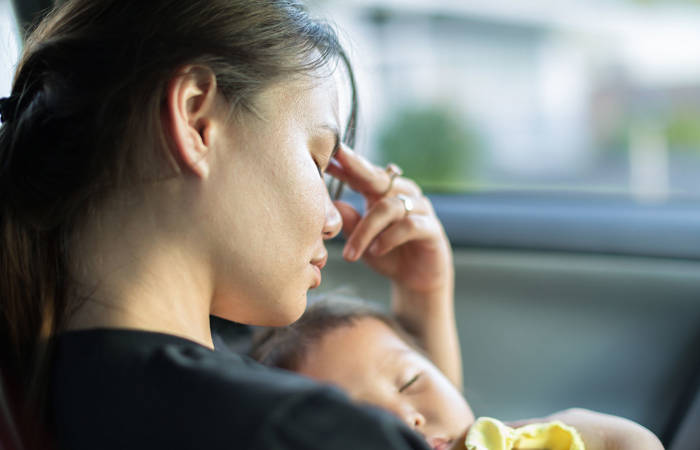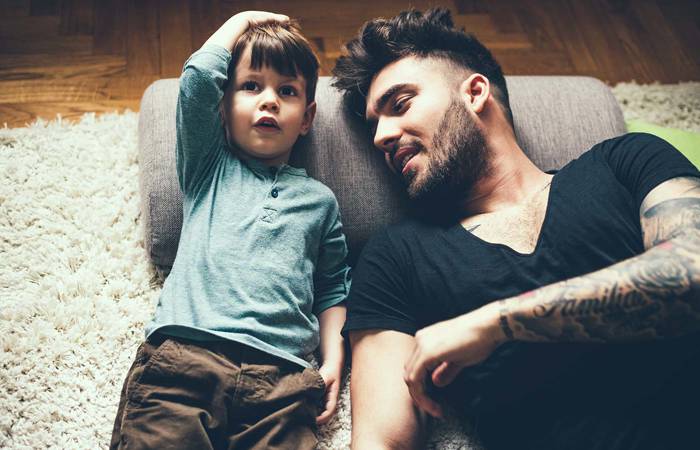Like what you see?
Sign up to receive more free parenting advice.
Thank you for subscribing to our newsletter!
Lifestyle

Credit: iStock.com/Halfpoint
Caring for a child when they are unwell is something all families go through. But when a child is seriously ill, it can be stressful for parents and a time to lean on support networks.
Taking care of a chronically ill child means not only dealing with your child’s needs, but processing your own emotions while dealing with the rest of the family’s wellbeing.
Perhaps long-term care is required or you might need daily visits from nurses, or just occasional trips to the hospital or medical centre – either way, it has an impact on the entire family. A sick child can drain the family emotionally, physically and even financially.
Explaining illness to a child
According to Professor Kerry Sherman from the Centre of Emotional Health at Macquarie University the first important step in this journey will be how to tell your young child that he/she is unwell.
“Communication needs to happen at the appropriate level for the child's age and developmental stage. It’s very important that you are open with your child. The way you tell a child that they are unwell must be done sensitively and at the level that the child is most likely to be able to understand,” Professor Sherman says.
“For example, if the child has cancer, there’s no point explaining to a three-year-old the intricacies of chemotherapy. They’re just not going to understand that. And many young children don’t quite understand the concept of time. So if there is a long-term illness, it has to be explained in a way that the child will understand.
“You might be able to say, ‘By Christmas, you might still be unwell’. Or you can think of some kind of anchor that’s meaningful to the child, such as a birthday. You could tell them that the treatment will be finished by their birthday, so the child has some understanding of the timing.”
We know that in the acute phase of an illness, within the first few months of diagnosis, the parents’ lives will have changed so much that they have almost stopped doing any leisure activities.Professor Kerry Sherman
Stay up to date with the latest news and articles from First Five Years
Thank you for subscribing to our newsletter!
The impact of sickness on family
An ill child in the family impacts families in many ways; there might be friends and family members stepping in to help, which could mean a range of different people coming to the home. It will also change the relationship between parents or carers.
“We know that in the acute phase of an illness, within the first few months of diagnosis, the parents’ lives will have changed so much that they have almost stopped doing any leisure activities,” Professor Sherman says.
“Quite often they’ll put work and study on pause because they want to focus completely on that sick child. And while that's happening, there's also the healthy siblings who also need to have some attention.
“So, it's not surprising that sometimes those healthy siblings do get a little left out. Or it might even be that other family members are looking after them for a period of time and they might need to stay with an aunt or uncle, or grandparents.”
Professor Sharman says parents will frequently also report high levels of stress, particularly if the sick child is their only child. But, in terms of the effect on the rest of the family, she believes it’s important to look at how the family functions and see how they’re able to adapt.
“One crucial part of that is making sure that communication stays open between all the members of the family.
“You will need to constantly talk to your family about what the ill child is going through and ask them how they are feeling about it too.
“It’s a crucial time for the family to be able to solve problems together during this difficult time.”
Supporting the siblings of sick children
Another reality of having a sick child is often dealing with the challenging behaviour of siblings, particularly if they feel they are being neglected as their ill sibling receives all of their parents’ attention.
Professor Sherman says it’s best to find ways to help siblings understand, depending on their age, that their brother or sister is unwell and that this is a temporary situation.
“There’s been research on the siblings of an ill child where they spoke to them as adults. They said to them, ‘What would you have liked to have happened when you were in this situation, and your brother or sister was sick?’. Many of them said they just wanted attention and they wanted to be acknowledged,” Professor Sherman says.
“So this comes back to the importance of honest and open communication, with children wanting to have emotional support. They want their feelings normalised, whether they were feeling angry, or if they felt sad.
“It was important for them to be able to speak to their parents or someone else to actually be told, ‘It's okay to feel like that, it's perfectly normal to feel like that’.”
“They also said they wanted to be able to just be a kid. And that there were more expectations put on them because they had a sick sibling. For example, ‘You’ve got a sick brother now, so you need to be more responsible. And they found that really difficult because they just wanted to be included, they didn’t want more responsibilities. Others said that they were yearning for some laughter and some humour. That was something they felt was missing in their lives, a bit of light heartedness."
Resources:
The Cancer Council has tips for parents coping with an ill child
Top tips:
- Keep communicating with your ill child so they know what lies ahead and keep reassuring them that they are loved and they’re being very well looked after.
- Reassure your child that he/she is not responsible for the illness.
- Use all available support, accept help from friends and extended family members.
- While family routines and dynamics will change, try to keep as much normalcy as possible.
- Keep any siblings “in the loop” so they don’t feel anxious or confused. They will spend time perhaps grieving their “normal life” but you can tell them it is only temporary and things will eventually return to normal after some time.
- Join a support group with parents who are going through a similar experience.







